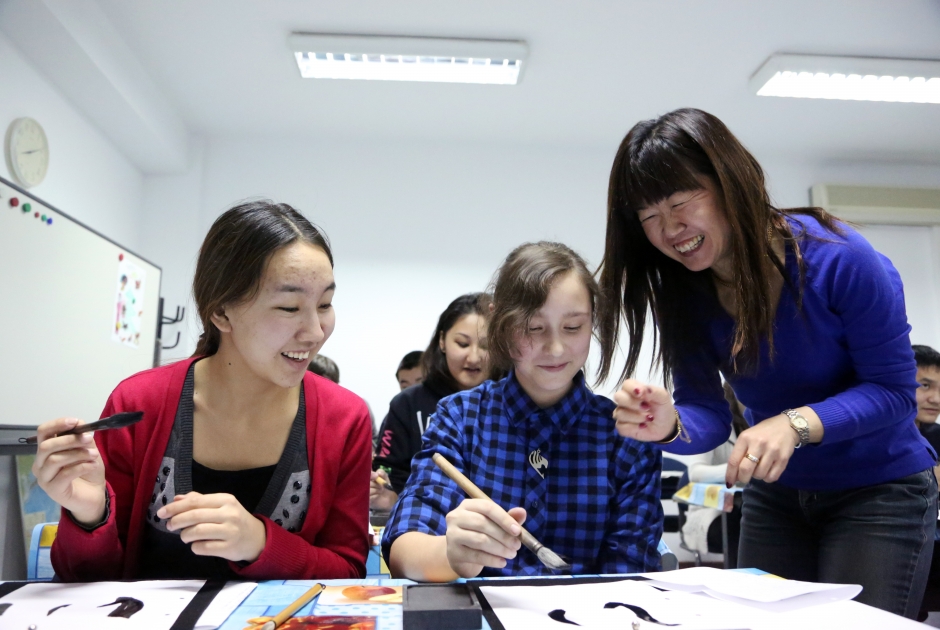ASTANA – This year Kazakhstan and Japan are celebrating the 25th anniversary of diplomatic relations between the countries. The Astana Times interviewed Nazerke Dautbayeva, manager of the Kazakh-Japanese Centre for Human Resource Development, to learn about its activities and events.
The centre was opened in 2000 as part of the agreement between Ryskulov Economic University and the Japan International Cooperation Agency (JICA). It has since moved to Kazakh Economic University (known as Narkhoz due to the old acronym of its name) in Almaty.
“Our cultural department conducts master classes, a Study in Japan education exhibition, the Day of Japanese Culture, calligraphy and language courses and visiting tea ceremony events,” said Dautbayeva.
The team consist of approximately 15 individuals with two-three freelance teachers, local specialists in Japanese language and culture and coordinators from Japanese organisations.
“In addition to regular employees, we are supported by other Japanese residents living in Kazakhstan, such as teacher Onishi sensei who works at Kazakh National University and conducts a course in Japanese calligraphy,” she noted.
The centre also organises business seminars and lectures by Suzuki Hajime with JICA support.
The capital-based centre offers language courses and visiting classes at the National Library. The one-semester course, with classes held twice a week, is available each year; the visiting classes are given on Saturdays for approximately three months. The course materials, programme and teaching methods are provided by the Japan Foundation. The cost is 47,000 tenge (US$141.85) per semester, which lasts about four months.
More than 7,000 people gathered in Almaty Oct. 7 for the Day of Japanese Culture coordinated by the Japanese Embassy in Kazakhstan, Kazakh Association of Japanese Businesspeople, Kazakh Association of Japanese People and Central State Museum. The programme included a demonstration of Japanese martial arts, performance by the Oedo-Taiko drum group, Yosakoi-Soran dances, a tea ceremony, calligraphy, origami and other exhibits.
“The annual event is aimed at strengthening cultural cooperation, developing ties and deepening mutual understanding between Kazakhstan and Japan and introducing local residents to the traditions and customs of the Land of the Rising Sun,” said Dautbayeva.
The centre is also welcoming visitors to tea ceremony classes each Friday through the end of the year.
“We plan to celebrate our centre’s 15th anniversary. We will organise master classes and a concert programme in December,” she added.
Dautbayeva spoke warmly about the “In Memory of Hiroshima and Nagasaki” exhibit, presented in Almaty and Semei in 2014 and dedicated to the victims of the 1945 atomic bombings. It featured photographs showing the tragic consequences in the two cities, video chronicles, documentaries about atomic catastrophe and the destruction caused by bombing, diaries of survivors, “Voice of Hibakusha” with eyewitness accounts of the Hiroshima bombing and paper cranes, the Japanese symbol of healing.
“I believe that this exhibition became our most interesting project. It was a large, one-time event. The preparation took almost half a year and we tried hard to organise an important and symbolic event,” she said.

